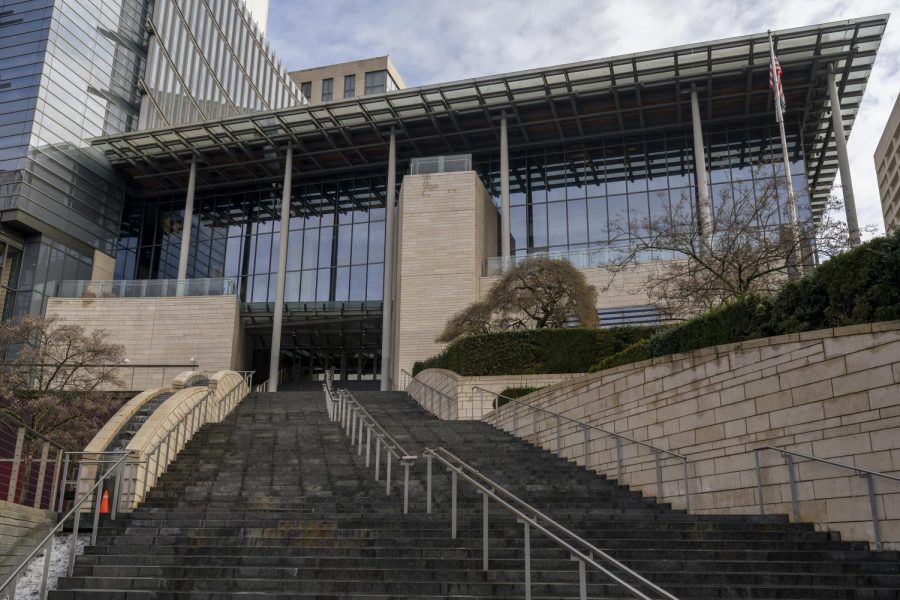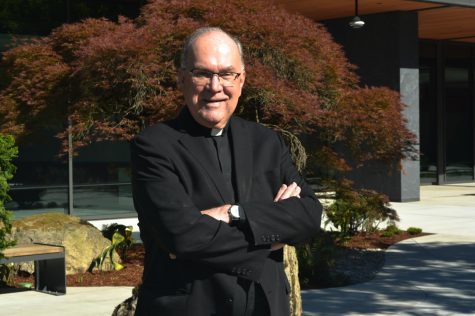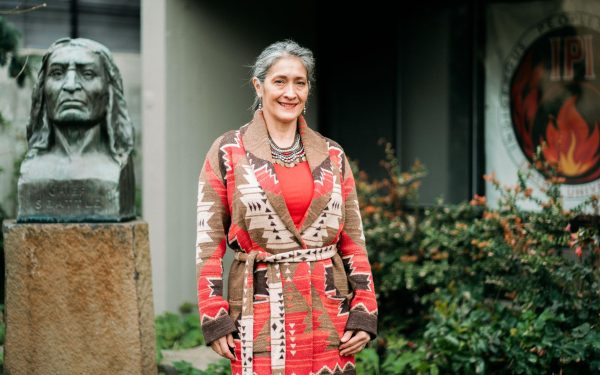Seattle Makes History by Passing Anti-Caste Ordinance
Seattle City Hall
Seattle is officially the first U.S. city to pass a law that recognizes and prohibits caste-based discrimination. Seattle City Council member Kshama Sawant has been at the forefront of advocating for anti-caste legislation and proposed the ordinance to ban caste-based discrimination, which passed in a majority 6-1 vote, Feb. 21.
The caste system is a hierarchical segregation method that Hindu society was broken into. It has five tiers (castes) that separated Hindus based on their nobility and privilege and dictated which jobs they could work, who they could socialize with and whom they could marry. While caste discrimination was lawfully abolished in India in 1950, caste segregation is still prevalent in social perceptions today.
Nalini Iyer, an English professor at Seattle University, acknowledged the privilege that she has experienced as a result of coming from upper-caste lineage and discussed how caste-based discrimination can manifest itself in the modern career sphere.
“[Workers from lower-caste lineage] experience discrimination in the form of not being invited to important projects or experiencing microaggressions. In not being allowed to socialize, career advancement is also hindered,” Iyer said.
The new ordinance recognizes caste as a defensible class and offers anti-discrimination protection in the workplace under the same shield as race and religion.
In response to the historic passage of the anti-caste ordinance, Sawant discussed the message she believes it sends to conservative Hindu communities who are in support of upholding the caste system.
“The reason it is such a historic victory is that it goes directly in the face of Hindu right-wing,” Sawant said in a speech.
Iyer echoed Sawant’s sentiment on the gravity of this new law and the implications it has on individuals who are affected by caste-based discrimination.
“It’s a very historic, very important thing,” Iyer said. “It gives those who were discriminated against an opportunity for legal trust and to make a profile form of compliance with human rights and the appropriate departments. It also raises awareness among the non-separation communities that this is a vector of oppression that they have to pay attention to.”
Seattle U Honors students had the opportunity to engage in discussion about caste-based discrimination, Feb. 23. The 2023 Honors plenary featured Isabel Wilkerson, author of “Caste: The Origins of Our Discontents,” a New York Times Bestseller that explored the lingering impacts of the caste system on the modern lives of South Asian people. Avery Segall, a second-year English and gender studies double major, was one of the students who attended the event.
“Racism does not only exist on the basis of skin color, but is also embedded in the hierarchies and systems that perpetuate it, thus creating a caste system,” Segall wrote to The Spectator. “By seeing it as a caste system, we can better work to dismantle the institutionalized racism that is so prominent in the U.S..”
Allison Wasley, a second-year English major, left the event with a newfound understanding of how the caste system permeates American society.
“[Wilkerson] focused on the history of racial oppression and the lasting effects on society through the metaphor of an old, run-down house that we did not build, yet are responsible for repairing,” Wasley wrote to The Spectator. “[Wilkerson] also emphasized that the core issue of these systems lies within their hierarchical structure; the creation of these categorized divisions on the basis of race, class, gender, sexuality, etc. are at the root of the problem.”
While the ordinance passing has been cause for celebration amongst certain individuals, it has also been the catalyst for intense backlash and criticism. Arguments continue to be made that this law seeks to malign Hindu communities by promoting a colonized image of the caste system and targeting an already vulnerable community.
Iyer discussed her exasperation towards the adverse responses to the ordinance, believing that they are a direct result of enduring caste-based ideologies.
“This [response] is fragility. This is, to me, exactly how caste discrimination manifests in the United States. They say that caste discrimination doesn’t exist. So, why do you care? If caste is not an issue, so what if [this ordinance] protects people?,” Iyer said.
Despite the polarizing nature of this legislation’s passage, Iyer stands firm in her belief that this law will set a precedent across the U.S. and hopes that brave political figures will continue to advocate against caste-based discrimination.
“In the freedom of those oppressed peoples lies the freedom of everybody,” Iyer said.











